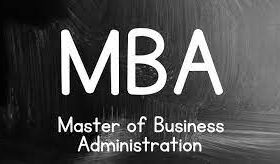In today’s rapidly changing business environment, the role of leadership has evolved significantly. As the global market continues to grow more interconnected, technological advancements redefine industries, and societal expectations shift, business leaders must adapt. MBA programs play a crucial role in preparing future leaders to meet these challenges. In this article, we will explore how MBA programs are shaping the future of business leadership and provide insights into the skills and knowledge future leaders need to thrive.
The Changing Role of Business Leaders in a Globalized World
Business leadership has always been about making key decisions, managing teams, and ensuring organizational success. However, globalization, digital transformation, and cultural shifts are influencing the skills and mindsets required for effective leadership. Today’s leaders must not only manage profit and productivity but also navigate a global workforce, ethical considerations, and environmental sustainability.
MBA programs are increasingly focusing on preparing leaders to handle these complex challenges. They emphasize global business perspectives, ethics, and the integration of technology into decision-making processes. Future business leaders must be equipped to lead across borders and manage diverse teams in ways that foster innovation and collaboration.
The Importance of Emotional Intelligence and Soft Skills in Leadership
While technical knowledge is essential, emotional intelligence (EI) has become a critical component of modern leadership. Successful business leaders are those who can empathize with their employees, communicate effectively, and motivate their teams to perform at their best.
MBA programs are recognizing the importance of developing soft skills alongside traditional business acumen. Courses that focus on leadership styles, communication, conflict resolution, and team dynamics are now common in many MBA curricula. Developing EI ensures that future leaders are capable of managing relationships within their organizations and are equipped to handle workplace challenges with tact and empathy.
Technology and Innovation: Preparing Leaders for the Digital Era
As technology continues to revolutionize industries, the role of business leaders is becoming more data-driven and technology-centric. From artificial intelligence (AI) to blockchain, leaders must understand how emerging technologies can transform their industries and create new business models.
MBA programs are adapting by incorporating more tech-focused courses. Topics such as data analytics, cybersecurity, and digital marketing are now integral to the curriculum. Business leaders of the future must not only understand the implications of technology but also leverage it to drive innovation and growth. This includes leading teams in the development of new tech products, managing tech investments, and ensuring that their organizations stay ahead in the digital race.
Sustainability and Ethical Leadership: A New Paradigm
As sustainability becomes a core value in society, business leaders are increasingly expected to integrate ethical practices into their decision-making. The future of business leadership is not just about profits, but about balancing financial goals with environmental and social responsibility.
MBA programs are focusing more on sustainability and ethical leadership. Many institutions offer specialized courses on corporate social responsibility (CSR), sustainability in business, and ethical decision-making. The next generation of leaders will need to be capable of driving change toward more sustainable business practices while ensuring that the long-term profitability and growth of their companies are not compromised.
Collaboration and Cross-Cultural Leadership: The Importance of Diverse Teams
In a globalized economy, business leaders must work with diverse teams from different cultures and backgrounds. This requires a unique set of leadership skills, including cultural sensitivity, collaboration, and inclusivity. As businesses operate across multiple regions, it is essential for leaders to embrace diversity and manage teams in ways that foster creativity and productivity.
MBA programs recognize the importance of cross-cultural leadership and are emphasizing diversity in their curricula. Programs often include international study opportunities, cross-cultural communication workshops, and courses in global management. Leaders of the future will need to cultivate the ability to work effectively in diverse teams, build inclusive environments, and leverage cultural differences as strengths.
The Rise of Purpose-Driven Leadership
A significant shift in business leadership is the rise of purpose-driven leadership. Consumers and employees alike are increasingly valuing companies with strong social and environmental missions. Business leaders must not only be focused on bottom-line results but also on the impact their companies have on society.
MBA programs are adapting by focusing on the concept of leadership with purpose. Students are encouraged to think about the broader impact of their business decisions, including the societal and environmental implications. This shift reflects a broader trend where business success is measured not just by financial performance, but by the positive influence companies have on the world.
Conclusion
The future of business leadership is one that demands versatility, adaptability, and a deep understanding of both global trends and human dynamics. MBA programs are evolving to meet these demands by integrating a wide range of disciplines, from emotional intelligence and cross-cultural leadership to technology and sustainability. As the business landscape continues to change, future leaders must be prepared to navigate complex challenges while staying grounded in values that promote both profitability and positive social impact.




